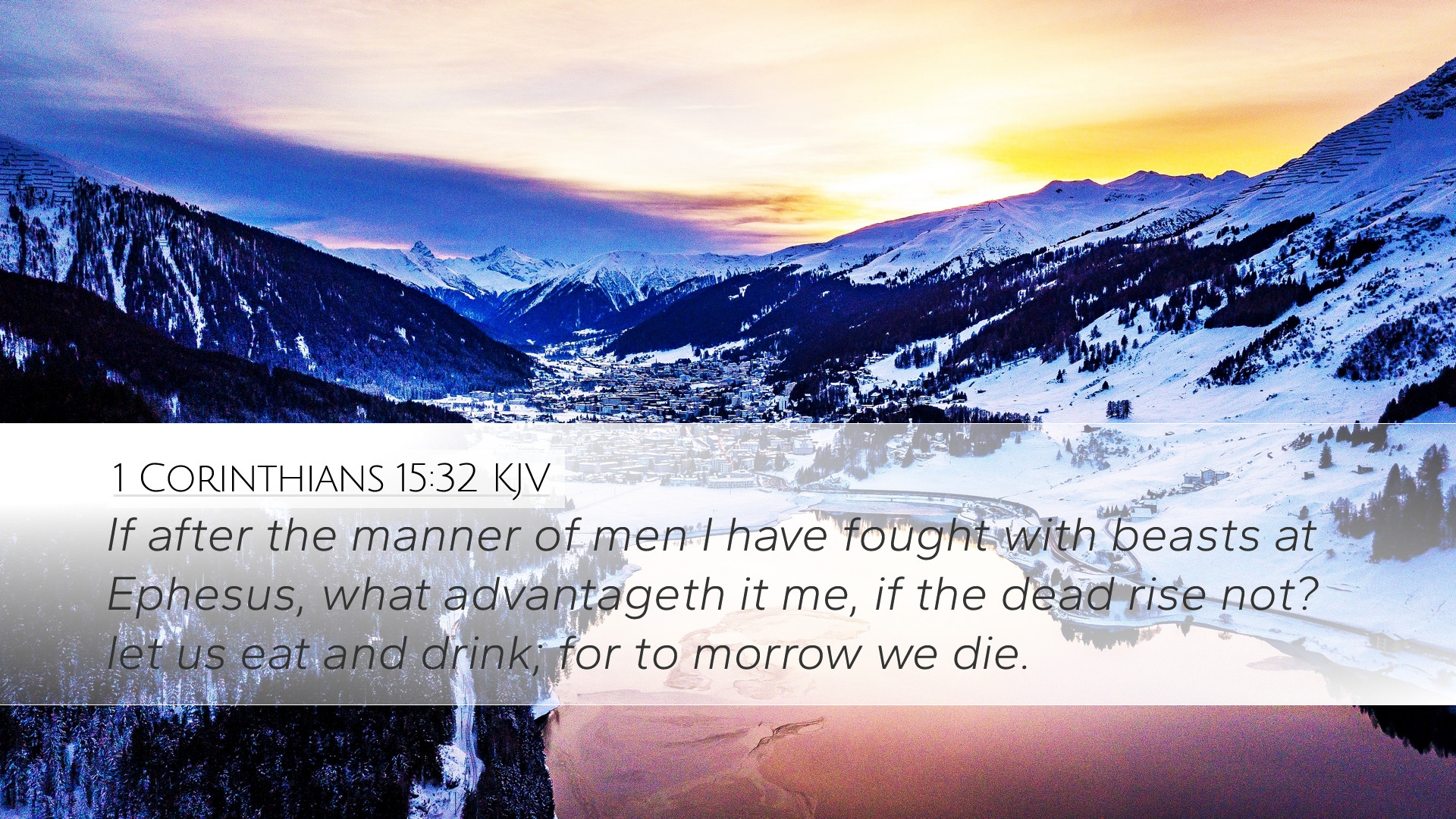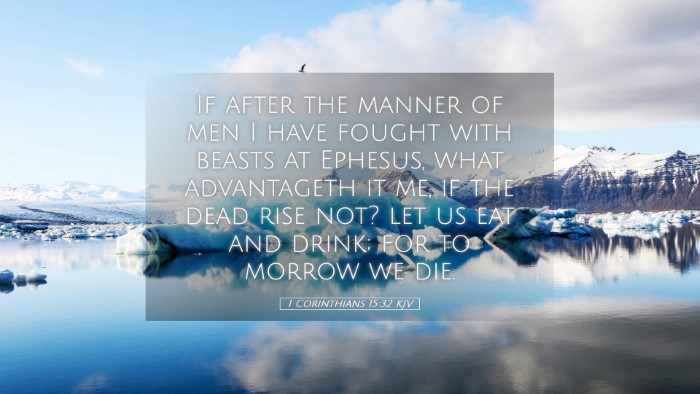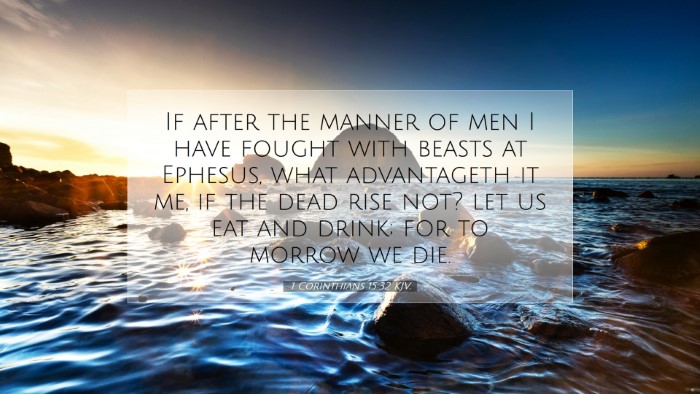Commentary on 1 Corinthians 15:32
Verse Citation: 1 Corinthians 15:32 - "If after the manner of men I have fought with beasts at Ephesus, what advantageth it me, if the dead rise not? let us eat and drink; for tomorrow we die."
Introduction
This verse is a pivotal reflection in Paul's treatise on the resurrection. It encapsulates the tension between temporal struggles and eternal truths. In his correspondence to the Corinthian church, Paul employs the metaphor of battling beasts to emphasize the difficulties he faced in his ministry. This commentary distills insights from esteemed public domain sources, providing a comprehensive understanding suitable for pastors, students, theologians, and scholars.
Contextual Analysis
Understanding Paul's context is essential. The Corinthian church was grappling with various philosophical ideas and moral issues. Among these, the denial of the resurrection was prevalent. Paul’s passionate argument in this chapter is aimed at affirming the reality of the resurrection of Jesus and, consequently, the future resurrection of believers.
Historical Context
Corinth was a city rife with idolatry and moral debauchery. Paul's ministry here was marked by significant trials. To the Corinthians, Paul references his real experiences in Ephesus as a metaphor for struggles endured in spreading the gospel amid hostility.
Verse Breakdown
“If after the manner of men I have fought with beasts at Ephesus”
Paul’s mention of fighting "with beasts" can be interpreted both literally and metaphorically. Some commentators suggest that he might be referring to actual physical threats he faced in Ephesus, while others point to the figurative nature of fighting against fierce opponents opposed to the gospel.
- Matthew Henry suggests that Paul is expressing the irrationality of risking his life for a cause that would be meaningless if there were no resurrection.
- Albert Barnes highlights that the "beasts" could signify the brutal opposition and the fierce philosophy of the age that contended against the teachings of Christ.
- Adam Clarke emphasizes the spiritual warfare involved, noting that the opposition Paul faced functioned as spiritual 'beasts' attacking the integrity of his faith and mission.
“What advantageth it me, if the dead rise not?”
In this existential query, Paul articulates the futility of his suffering without the hope of resurrection. He poignantly argues that his sacrifices yield no benefit if there is no life after death.
- Matthew Henry asserts that this rhetorical question serves to challenge the Corinthians' disordered beliefs regarding the resurrection.
- Albert Barnes points out that such a statement reflects Paul's deep commitment to the doctrine of resurrection and its centrality to the Christian faith.
- Adam Clarke elaborates that Paul is encouraging believers to reflect on the purpose of their faith, emphasizing that if resurrection is denied, all efforts in the faith are rendered inconsequential.
“Let us eat and drink; for tomorrow we die.”
This concluding clause is a stark reminder of the temporal nature of life and the nihilism that accompanies denial of an afterlife. Paul references a popular saying of the time, reflecting the hedonistic philosophy prevalent among some Corinthians.
- Matthew Henry interprets this sentiment as an appeal to the carnal aspects of existence when stripped of eternal hope, illustrating a philosophy of despair.
- Albert Barnes emphasizes that Paul’s allusion here is meant to underscore the absurdity of living solely for worldly pleasures if death is the end.
- Adam Clarke urges readers to recognize that such a lifestyle contradicts the very essence of Christian belief which promises life beyond death.
Theological Implications
This passage presents profound theological implications, especially in the context of resurrection and Christian hope. The foundational belief in resurrection not only undergirds Christian faith but also influences the ethical and moral conduct of believers.
- Hope and Resurrection: The assurance of resurrection provides hope that transcends earthly sufferings.
- Moral Conduct: If believers truly hold to the resurrection, it should affect how they live in the present, motivating a life of purpose rather than one of despair.
Conclusion
Paul’s appeal in 1 Corinthians 15:32 serves as both a challenge and an encouragement to Christians. He adeptly uses his own sacrifices to illustrate the vital importance of the resurrection. For pastors, students, and theologians, this verse is a clarion call to engage deeply with the implications of resurrection in preaching, teaching, and daily living.


